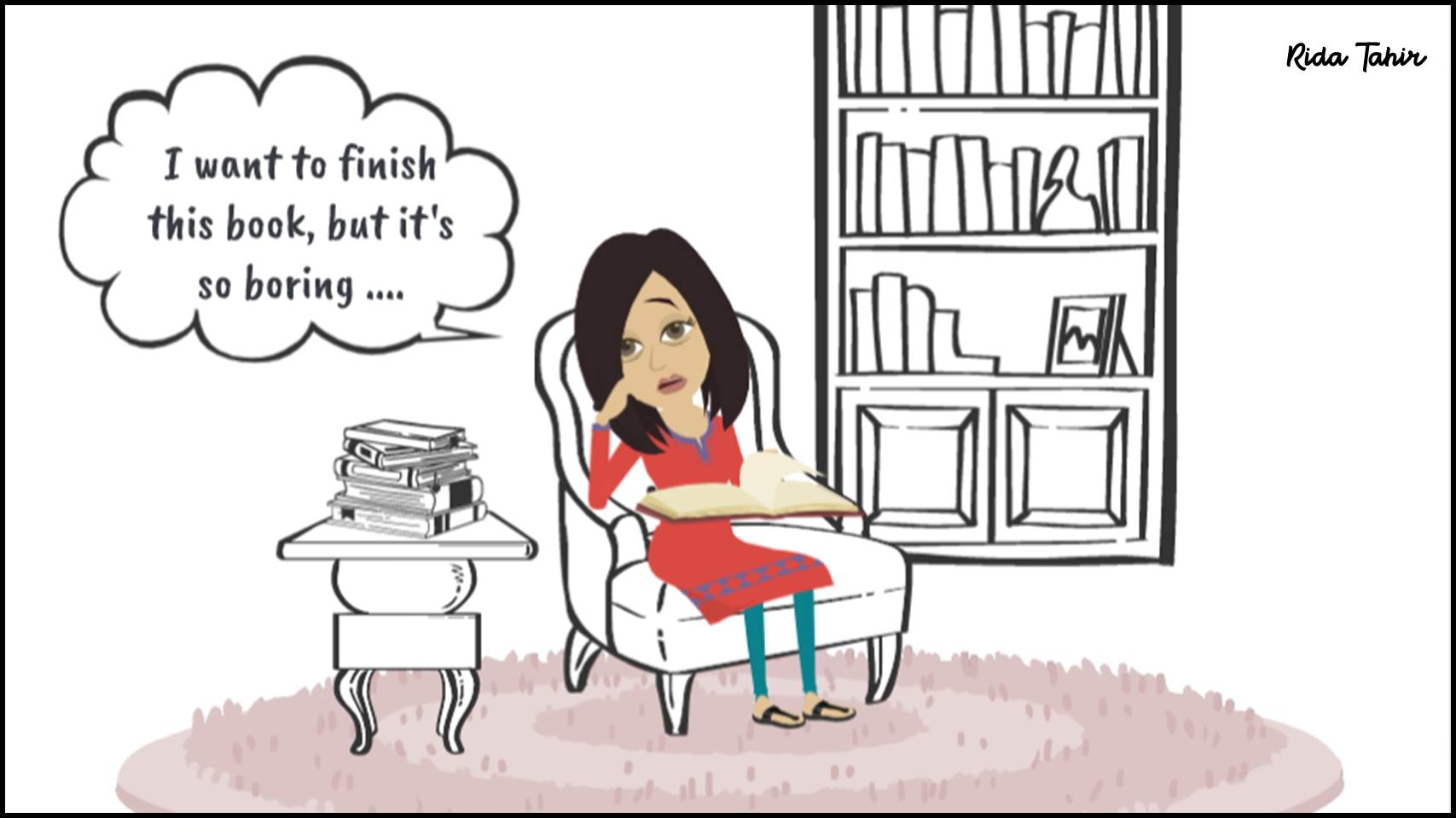On Expectations, Problems and Solutions
Written by Rida Tahir on Sep 28, 2020 (2 minute read)


Sometimes, the problem is not out there.
It's in here... in our mind.
In our mindset.
In our expectations.
Just today, I came across two posts about people who were frustrated for being unable to finish reading a book.
For them, it was a problem that needed to be solved, because in their minds, they are supposed to finish every book they pick cover to cover.
Why? Because we think it's an unwritten rule. Because we think that's what everybody else does.
We are unconsciously conditioned by our surroundings into assuming and expecting that we should finish every book that we start.
I remember how I used to be so mad at myself for losing interest in every book before even reaching halfway through it.
But then I was like, what does it even matter? It's not a race and no one's keeping a count of how many books I read cover to cover.
I mostly read non-fiction books because I want to gain knowledge. Every non-fiction book is full of knowledge, so even if I manage to read only 5 pages of a book, I still learn.
Every book that I read, even if it's just 5 pages, it makes me a better person, even if it's just a tad bit better.
When I figured that my own expectation was the problem, I simply stopped expecting, and accepted that it's okay to not finish every book I pick.
And voila! My problem was solved.
The point is, it's okay to leave half-read books and move on to something else. If you are reading for pleasure or for gaining knowledge, there's no need to force yourself to read a book till the last page, unless it's a part of required reading at school or university.
By forcing yourself to read something you're not interested in, you not only waste your time and energy, but also defeat the purpose of reading the book i.e. you neither derive pleasure from it, nor do you learn much of value.
All you do is frustrate yourself in the process. Spare yourself this frustration.
Now, you can call it rationalization or cognitive dissonance management or reasoning, or excuses, or whatever you like, but I call it problem-solving.
Sometimes, a problem can be solved by only changing the way we think about it.